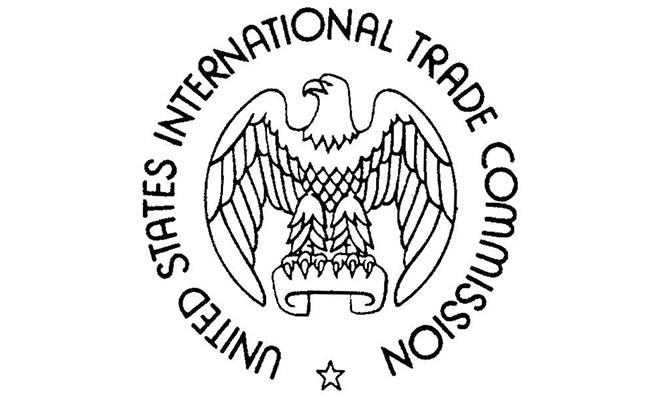In a filing with the U.S. International Trade Commission on Monday, Apple requested the body stay an import ban against older model iPhones and iPads while a court considers an appeal on the ruling.
Apple's motion, which comes less than four weeks before the sales ban is scheduled to into effect on August 5, says the ban would "sweep away an entire segment of Apple's product offerings" and negatively impact the company's partner carriers.
As noted by GigaOm, the motion claims Apple will lose out on sales of GSM versions of the iPhone 4 and iPad 2 with cellular, which would hinder the company's efforts in garnering new customers from the entry-level devices. Since the iPhone 5 was released in September of 2012, the 8GB iPhone 4 became Apple's free-on-contract offering, an important product that allows the company to introduce a wider range of consumers to the iPhone ecosystem.
The ITC's ban was handed down in June after the six-member Commission determined Apple had infringed on certain 3G wireless patents held by Samsung. The limited import ban affects GSM versions of the iPhone 4, 3GS and 3G, as well as versions of the iPad 2 and original iPad.
According to Apple, GSM network operators will cede a competitive advantage if the products are taken off the market. Although the names of the telecoms were redacted from the public version of the filing, Apple is most likely referring to AT&T and T-Mobile, two of the nation's largest wireless providers.
Apple is a little over half way through a 60-day Presidential Review period in which the White House can veto the ITC order. If no action is taken, as is usually the case, the import ban becomes effective.
In arguing for a stay, Apple notes that an appeal has already been lodged with the U.S. Court of Appeals for the Federal Circuit, and believes the outcome of that case will be an invalidation of Samsung's asserted patent. If the CAFC rules in favor of Samsung, the Korean company can collect damages in another suit pending in Delaware, Apple says.
 Mikey Campbell
Mikey Campbell







-m.jpg)






 Malcolm Owen
Malcolm Owen
 William Gallagher
William Gallagher
 Charles Martin
Charles Martin
 Christine McKee
Christine McKee
 Wesley Hilliard
Wesley Hilliard

 Andrew Orr
Andrew Orr








11 Comments
Apple to ITC - "At least let us sell off our remaining stock on hand of these older units."
Apple to ITC - "At least let us sell off our remaining stock on hand of these older units."
ITC to Apple - "We would then have to extend Samsung the same courtesy."
Wait but isnt Samsung violating their contract terms? Why shouldapple be responsible for that? Everyone has to use 3g patents,
Wait but isnt Samsung violating their contract terms? Why shouldapple be responsible for that? Everyone has to use 3g patents,
According to the lawsuit Apple copied the 3G patent and didn't license the technology from Samsung so there was no contract. This lawsuit must have some validity or the trade commission wouldn't have banned the importing of the iPhone 4 and iPad 2 3G. The iPad 2 3G and iPhone 4 is still a big seller and this could affect Apple's bottom line and stock price. I'm sure Obama will overturn the decision though so this won't be such a big deal but if he doesn't, well, Apple might have to pull these products.
Quote:
Wait but isnt Samsung violating their contract terms?
Not according to the ITC.
Samsung did what was required, which was to negotiate rates.
Samsung started off with a high rate. Apple responded with a low rate. All normal so far.
Samsung continued to make offers, going lower each time. Apple refused to talk after their first response. This made them an unwilling licensee in the eyes of the ITC.
Quote:
Thus everyone has to pay for them. (That's one reason why companies contribute them towards the standard.)
ETSI members are expected to enter negotiations with the patent holder. If they fail, the next step is to use available ETSI arbitration aid. Apple did not do this, preferring to file lawsuits claiming FRAND abuse instead. That was a mistake.
The ITC imposed the import ban because, as they put it, Apple accused Samsung of not following ETSI FRAND rules, yet Apple failed to follow those rules themselves.